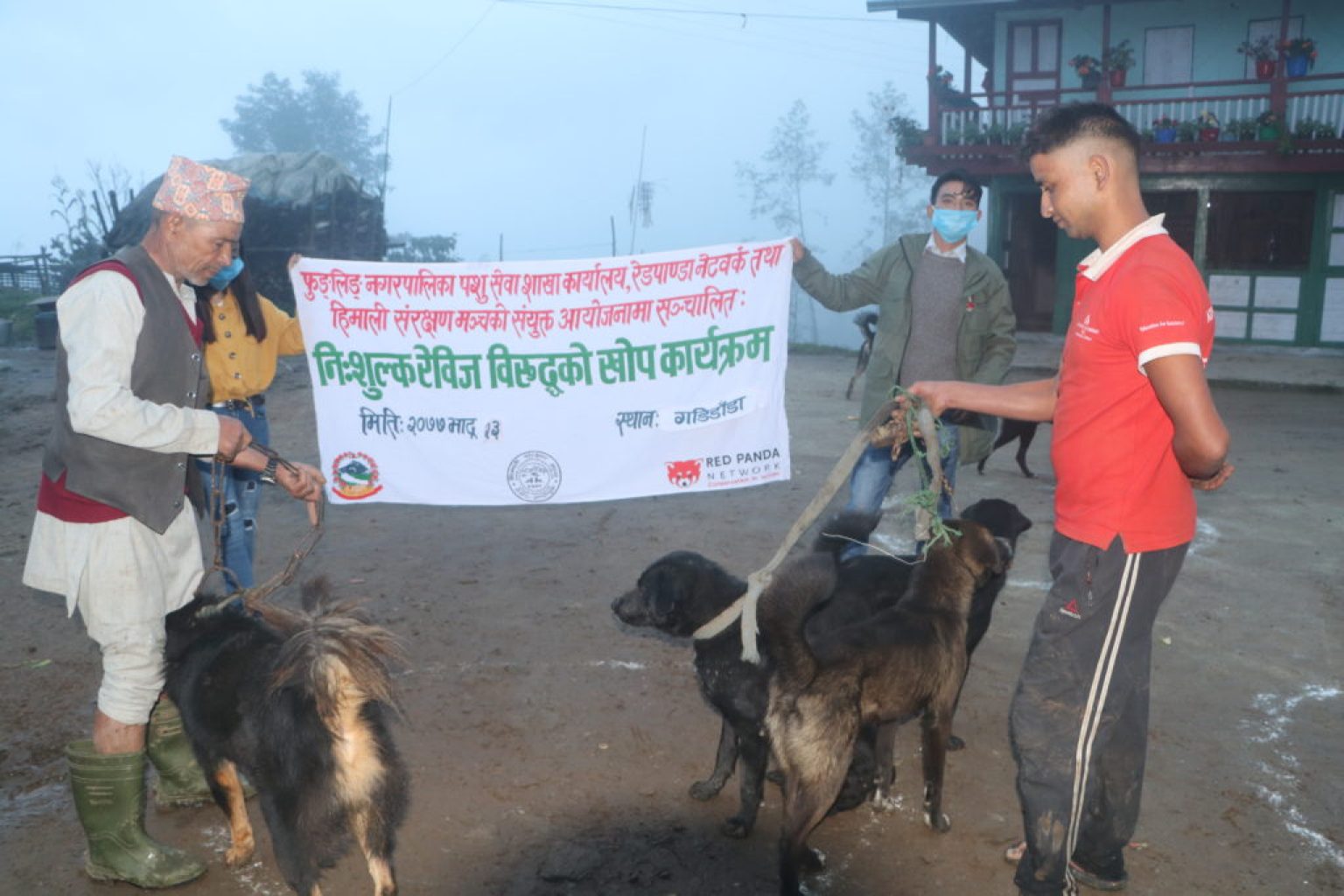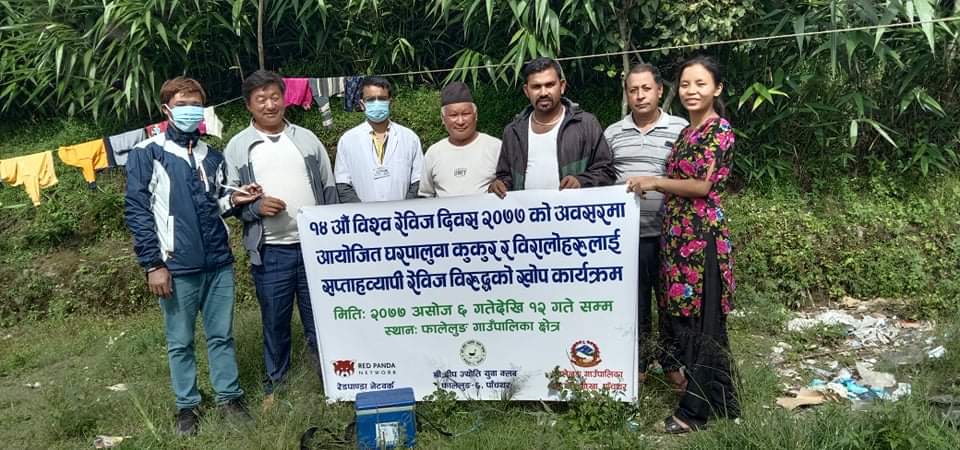End Rabies for Red Pandas!

RPN is committed to vaccinating dogs and reducing red panda mortality from rabies transmission in Nepal.
Canine companions in Nepal are killing red pandas.
According to BBC News, the future of 200 wildlife species is threatened by our planet’s estimated one billion domestic dogs.
Some of these dogs are feral and free-ranging — Red Panda Network (RPN) calls them ‘free-roaming’ — and this global stressor to biodiversity has caused nearly a dozen wildlife species to go extinct.
Free-roaming dogs cause wildlife to move away from an area, either temporarily or permanently. Wild animals become less active during the day in order to avoid interaction with the strays. Free-roaming dogs can kill wild animals and spread diseases. They can also pollute water sources and transmit parasites to both animals and humans.
Video: Feral dogs in red panda habitat in Myam Patal Community Forest in eastern Nepal.
In eastern Nepal, humans are converting red panda habitat to agriculture, pastureland, and settlement; and encroaching on their home as they harvest forest resources. We have also identified free-roaming dogs -- mostly feral, hunting and herding dogs in the region’s Panchthar-Ilam-Taplejung (PIT) corridor -- as a top threat to local red panda populations.
“They can be predatory and kill the pandas,” remarks RPN’s Program Coordinator, Sonam Tashi Lama. “Or they can transmit dangerous diseases that may result in red panda mortality.”
So if the red panda is fortunate enough to escape a dog attack with its life, a bite can result in a debilitating parasite or death by rabies or the canine distemper virus.
Dogs can also spread seven species of gastrointestinal parasites to red pandas.
Unfortunately, the disadvantaged communities of rural Nepal are often unable to vaccinate their pets. So, in honor of World Rabies Day, we are working with Global Alliance for Rabies Control to offer free rabies vaccinations and vaccinate approximately 2,300 dogs in 6 of the nation’s red panda range districts!

Free rabies vaccination event in Taplejung, eastern Nepal. © RPN
This goal will be achieved through RPN’s continued collaboration with community partners in Nepal. In eastern Nepal: Deep Jyoti Youth Club in Panchthar district, Mountain Organization (Ilam) and Himali Conservation Forum (Taplejung). Danphe Yuwa Club (Jajarkot) and Human Right Awareness Center (Rolpa) Human Rights Environment Development Campaign and Research Center (Rukum) are who we are working alongside in western Nepal.
"The free rabies vaccination camp by RPN is beneficial not only for dogs but for all the residents of this village. We would like to see the continuation of this program in the future," said Yogesh Bhattarai, Chairman of Ward Council in Phungling Municipality of Taplejung district.
This isn’t the first time RPN has worked to alleviate the threat of free-roaming dogs. Earlier this year, we completed a free-roaming dog survey in the PIT corridor of eastern Nepal. The information from the survey is being used to guide conservation interventions to reduce red panda mortality and disease transmission.
RPN is working with local agencies and community organizations in Nepal to implement neutering and rabies vaccination programs for free-roaming dogs.
In the last two years, we have vaccinated 1,800 free-roaming dogs in Jajarkot district, western Nepal! 159 dogs were also vaccinated in eastern Nepal's Panchthar district.
In 2017 and 2018, RPN partnered with the District Livestock Service Centre of Ilam and Taplejung in implementing a neutering and rabies vaccination program. A team of technicians performed neutering operations on 200 dogs between the ages of 8 months to 9 years, benefitting 156 households of 8 Community Forests. 53 dogs received rabies vaccinations.

Free rabies vaccinations in eastern Nepal. © RPN
Visit our event page to learn more about our initiative in Nepal! Want to get involved in helping the Global Alliance for Rabies Control reach their goal of eliminating rabies by 2030? Check out World Rabies Day.
Click here to learn more about community-based programs in Nepal!
